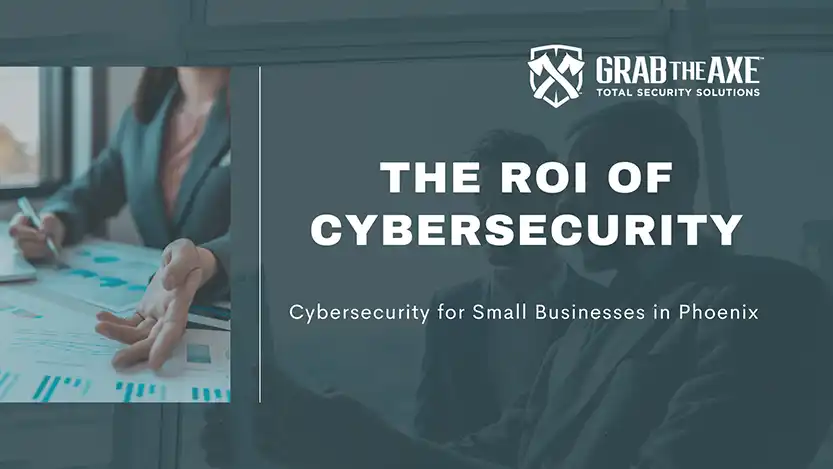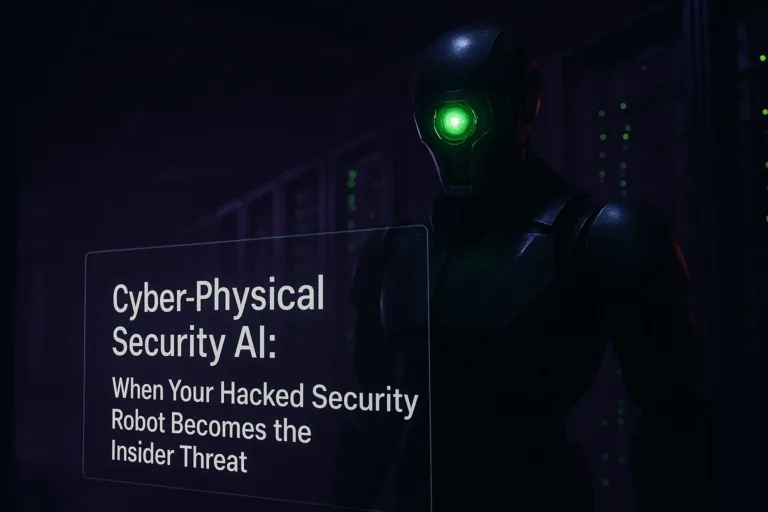Today, we will explore why the ROI of cybersecurity for small businesses in Phoenix is not only high but essential to long-term success. Small businesses in Phoenix are no strangers to the growing digital landscape, but many owners underestimate the risks that come with operating online. Cybersecurity often feels like an overwhelming expense rather than a necessity, but failing to secure your digital infrastructure can lead to devastating financial and reputational damage. This is especially critical for Phoenix-based companies that handle sensitive customer data, whether in retail, healthcare, or any other sector.
Why Phoenix Small Businesses Need to Prioritize Cybersecurity
Many Phoenix small businesses, from retail to healthcare, rely on digital tools to manage transactions, store customer data, and streamline operations. However, cyberattacks are becoming increasingly sophisticated. The City of Phoenix has seen rising cases of ransomware attacks, phishing schemes, and data breaches that primarily target vulnerable small businesses. Without proper protection, these companies face potential financial ruin.
For example, a small local accounting firm suffered a data breach that exposed sensitive client information. This led to a significant loss of clients and revenue, illustrating that cyberattacks can have a profound impact on both financial stability and reputation. Cybersecurity ROI is about mitigating these risks. With the right strategies in place, businesses can avoid expensive recovery processes, legal fees, and customer trust issues. In fact, a recent study shows that every dollar invested in cybersecurity saves an average of $4 in breach recovery costs.
Key Cybersecurity Standards for Compliance in Phoenix
Depending on your industry, several cybersecurity standards may apply. For instance:
- HIPAA: Healthcare providers in Phoenix must comply with the Health Insurance Portability and Accountability Act (HIPAA), which requires stringent data protection measures.
- PCI DSS: Retailers that handle credit card transactions need to adhere to the Payment Card Industry Data Security Standard (PCI DSS) to avoid heavy penalties.
- CCPA: E-commerce businesses must comply with the California Consumer Privacy Act (CCPA) if they serve customers in California, ensuring data privacy and security.
Non-compliance with these standards can result in fines, lawsuits, and long-term damage to your brand. A proactive approach that includes regular compliance checks will keep your business safe from legal ramifications.
How to Implement Cybersecurity Solutions for Phoenix-Based Businesses
To secure your small business in Phoenix, there are several actionable steps you can take:
- Security Assessments: Start with a comprehensive cybersecurity assessment from a professional. This will help identify vulnerabilities in your system.
- Firewalls and Antivirus Software: These are the first lines of defense. They block unauthorized access and malicious attacks, giving you a security buffer.
- Employee Training: Many breaches occur due to human error. Regular training for your employees on phishing schemes, password security, and safe online practices is crucial.
- Multi-Factor Authentication (MFA): Implementing MFA adds an additional layer of security to your accounts, significantly reducing the chances of unauthorized access.
- Data Encryption: Encrypt sensitive customer and company data both in transit and at rest, so even if it’s intercepted, it cannot be read without the proper key.
Affordable solutions like cloud-based security services can make high-level protection accessible even to small businesses on a budget.
The ROI of Cybersecurity
Investing in cybersecurity delivers significant returns in both financial and operational areas. Preventative measures can save your company from the substantial costs of a cyberattack, which, according to research, can range from $50,000 to over $1 million, depending on the severity of the breach.
Beyond the financial aspect, strong cybersecurity fosters trust with your customers. In a time when data privacy is paramount, having robust security practices can set your business apart, making clients more likely to choose your services over a competitor’s. Many small businesses report increased client retention after implementing visible security measures.
A real-world example is a Phoenix retail chain that invested in upgraded security systems after experiencing a minor breach. The proactive approach not only prevented further incidents but also improved their reputation, resulting in higher sales and stronger customer loyalty.
In today’s digital world, the cost of not securing your business far outweighs the investment in cybersecurity. For small businesses in Phoenix, cybersecurity is more than just an IT concern—it’s a business imperative. By taking action now, you can protect your business from costly breaches, comply with legal standards, and enjoy the long-term benefits of trust and security.
If you’re unsure where to start, consider reaching out to cybersecurity experts who can provide an assessment tailored to your needs. Get Your Security in Hand and enjoy peace of mind tomorrow.
References:
Ponemon Institute. (2020). Cost of a Data Breach Report. IBM Security. https://www.ibm.com/security/data-breach
To Learn More:
Why Resort Security Services in Phoenix Must Include Tailored Assessments
The Importance of Healthcare Cybersecurity in Phoenix: Protecting Patient Data in a Digital Age
Why Phoenix Security Services Must Include Comprehensive Assessments





